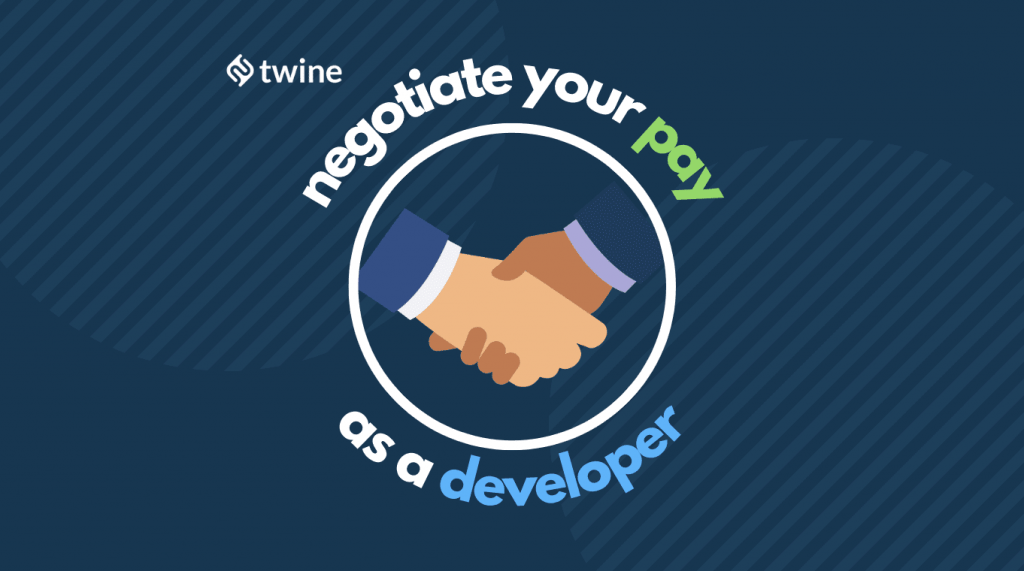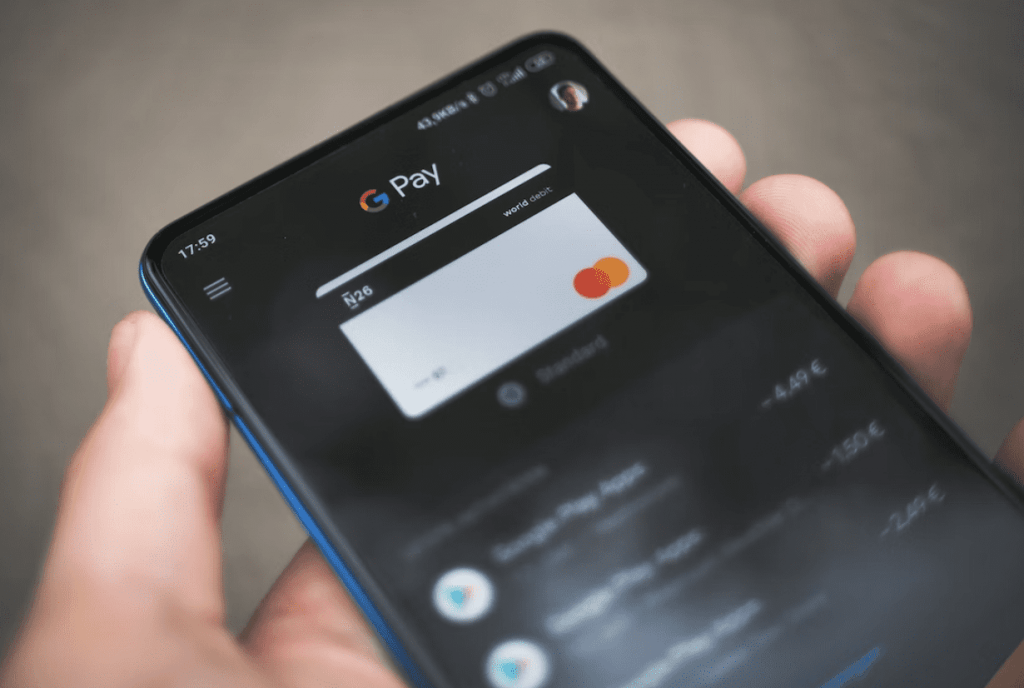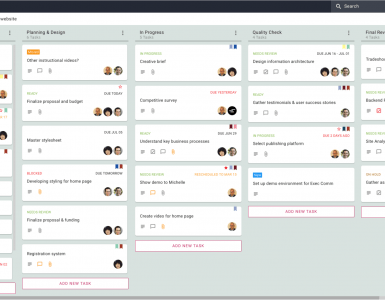
For more Web Tools, check out the Freelancer Toolkit…
If you’re new to freelancing or are looking to find ways to increase your income, knowing how to negotiate your pay as a freelance developer is a great way to earn more.
However, it can be easy to be taken advantage of if you don’t leverage the right skills.
Freelance developers can enjoy the freedom of setting their own schedule without the need for the daily 9-5 grind. Understanding how to negotiate your pay as a freelance developer can mean higher income, better clients, and more regular pay.
Developers! Ready to be recognized as an expert in your field?
Emphasize the Value of the Work Over Price

After finding a suitable freelance job, it’s time to start negotiating your pay.
When negotiating over a project or rate, start with the value of your work, not the price. It may seem obvious to start with the numbers, $75/hour, $85/hour, etc., but in reality, this is a poor way to negotiate.
Now, determining your exact worth as a freelancer may be challenging; however, your pay should reflect the value of the work being generated. This is why it’s key to start with value over price. When you start negotiating, it’s best to start by pitching your value and answering the following questions:
- Why should the client hire you?
- What makes you stand out from other developers offering the same service?
- How will your work help the client increase their business?
Remember, value isn’t the price of your work or the cost of whatever services you provide. As a developer, you have a special set of skills. For example, depending on your training, you might be an expert in mobile app development or cybersecurity. These skills can then be applied to the unique problem facing your client.
An expert negotiator will emphasize that your work has helped others generate additional revenue for their business, has solved some sort of problem, or has launched a new company. Once you’ve established the value that you bring, you can start discussing other things like fees.
Build a Pitch

An important part of selling your value is developing a strong pitch.
Let’s face it; if you’re a developer like me, you’d probably rather be munching on some snacks while pouring over code instead of pitching a new project to someone. However, your pitch is a crucial aspect of negotiating your pay; it is the foundation of your interaction with a new client.
Many developers have just recently turned to freelance because of the rising cost of living, including car ownership. For example, the average cost of owning a new car today is around $11,500 annually.
But, if the rising living costs have pushed you to take your first side gig, you may have never had to write a pitch before. Fortunately, a pitch doesn’t have to be a presentation you give over a video conference. Your pitch starts with your online presence, whether on a freelancing website or your LinkedIn profile.
Earlier, we discussed the difference between value and price; your pitch should emphasize the value that you bring. You should also discuss your skills, relevant work experience, and past successes. Ultimately, building a pitch is all about discovering what relevant details about your work other people are most interested in. A bad pitch can derail you from acquiring clients or turn them away, even if you’re the world’s greatest coder.
Discuss Previous Experience

Discussing your previous experience is an integral part of how to negotiate your pay as a freelance developer.
For example, perhaps you started working really young, maybe even in your teens. In that case, not only have you had the time to save up and invest your money from a young age, but you’ve also amassed a wealth of experience and skills you can now use to negotiate a higher rate.
Once you’ve established the value you bring to your client, you can move on to discussing what you’ve been paid in the past. An old business adage says that you have to know your numbers. This couldn’t be more true with freelancing as a developer. You should have a solid idea of how much you have charged for projects in the past.
As a developer, you may charge an hourly rate, a fixed project price, or a combination of the two. We’ll discuss this later, but you should be prepared to communicate your previous rates to a potential client. Additionally, you should also be able to discuss the number of projects you’ve worked on.
Having these kinds of numbers helps your client measure your value. If you have fair and consistent amounts you’ve charged in the past, this will help the client feel comfortable with however much you’re billing them for. This process also communicates your experience level, making the client more willing to match earlier or higher prices depending on how much they value you.
Draw Comparisons Between Other Freelancers and the Market Rate

Why stop comparing yourself to your previous work? Another excellent point to mention to clients is the market rates others are charging.
Depending on their qualifications, some developers can make over $200/day. These benchmark references are helpful if your client is unfamiliar with freelance services.
One way to learn more about freelance pricing and the average amount developers make is to check the U.S. Bureau of Labor Statistics. The BLS publishes tables and reports on wages in the US, and is a great resource for understanding what the average wage of a software developer is.
By providing your client with this information and where you got it from, they’ll know they can trust the information, and it will help you build rapport with them.
Form a Partnership With Your Client
A powerful way to negotiate a higher wage as a developer is to utilize the “we” language.
Here’s the concept: by referring to yourself and your client as “we” or “us,” you help communicate to your client that you’re on the same side.
Since you want to negotiate the highest fee possible, this is a great way to help push your client into an agreement with you. Forming a partnership with your client can be another way to help guarantee they pay you a higher rate.
Under-Promise, Over-Deliver

One of my mentors early in life taught me this skill when performing any kind of work. He told me, “under-promise, over-deliver.”
But, how does this apply to negotiating a wage? It basically means remember, when discussing your wage, to be mindful of the amount of work you’re doing.
One error many freelancers make is that they promise their clients the world, charge them accordingly, and then find themselves unable to deliver when the time comes.
As a freelance developer, you should ensure that the work you’re charging for reflects the actual work you’ll be performing. You can factor this into your rate.
The key is to make the client feel like they’re getting value for what they’re paying you. As a web developer, for example, you might charge a specific rate for a website depending on the number of pages and features you’ll build.
You could offer the client three months of ongoing maintenance after the project completion or a guarantee of keeping a backup copy of the website in case anything goes wrong.
In short – commit yourself only to the work that you’ll be able to complete.
Stand Your Ground, but Remain Polite
If you believe your price accurately reflects the value of your work and it’s reasonable, you should stand your ground. Naturally, you should remember to remain polite when standing to your pricing (no one wants to deal with bad freelance etiquette after all).
One good way of handling clients that think your fee is too high is to remind them of the value of your services. Consider the market rates and other benchmarks, and bring this to your client’s attention.
You could even discuss your previous fees and other projects you’ve worked on. Throughout this process, emphasize the “we” and “us” language discussed earlier. By relying on unifying language, you can help solidify with the client that you’re both on the same team.
Offer Alternative Payment Plans

When finding ways to negotiate your pay as a freelance developer, another excellent way is to use different payment schemes depending on the work.
For example, you don’t always have to charge an hourly rate for work. As a freelancer, you’re free to charge by the project or if you’re familiar with Scrum, based on sprints or project completion. Some freelancers will even take on a retainer, and bill the client as they complete work.
In the end, it’s up to you. Here are some things to consider:
- Hourly work can be great if the project has an indeterminate volume of work, or amount of time necessary for completion.
- Charging by the project, on the other hand, can be great if you’re familiar with the task and can complete it quickly, for a higher price.
For example, let’s say you build cloud web apps for sifting through unstructured data. Let’s say, in the past, it has taken you around 100 hours to build similar apps.
At $50/hour, that would net you $5,000. However, as you have become a better, more efficient programmer, you can now build a similar app in only 80 hours. If you charged an hourly rate for the same app, that would net you $4,000, $1,000 less than if you had simply taken more time!
Ultimately, it’s all about communicating the value you bring to the project.
Segment Your Markets
Building off of our previous example, you can also engage in price segmentation. Price segmentation is the process of pricing the same product or service differently depending on the target market.
Now, some consumers have higher levels of price sensitivity; this is how likely they are to purchase something as the price changes. The sensitivity to changing prices is called the price elasticity of demand. Some consumers are more sensitive to price increases, while others are not.
Companies often use this to their advantage, but freelancers can too! Projects with tight deadlines or emergency fixes are often much less sensitive to price hikes. (Why do you think FedEx can charge you an arm and a leg for overnight delivery?)
When trying to negotiate your pay as a freelance developer, find out important details: available budget, project timeline, and other details.
This will help you determine what fee is appropriate. You could, for example, have a higher fee for rush projects that need to be completed quickly.
Discuss Your Qualifications and Certifications

Finally, you should share your qualifications and certifications with any potential client and also update repeat clients about your achievements.
Many developers have little to no formal college training but acquire certificates demonstrating knowledge in specific fields. For example, Microsoft and Google both offer certificates in different areas.
In addition, CompTIA, one of the largest certificate providers, offers several certifications for developers. Sharing your certificates and qualifications is a great way to justify your pay as a freelancer.
Also, consider sharing other special skills you have. Today, developers may work with diverse teams from across the globe.
Sharing that you have skills in a foreign language, or even if you know a greeting in another widely-spoken language such as Japanese, Spanish, or Mandarin, can help you stand out against other potential candidates. Being able to communicate in another language also opens up your ability to work with a larger, broader client base.
Wrapping Up
Determining your value as a freelance developer can be tough, and your pricing depends on your skills, experience, and the project at hand. When learning how to negotiate your pay as a freelance developer, start by emphasizing the value you can bring the client.
Detail your experiences with similar projects, be open about the rates you have charged in the past and don’t hesitate to compare your fees to current market rates.
Above all, try to form a relationship with your client by using unifying language and showing them you’re on the same team.
Ready to get hired? At Twine, we have dozens of top-quality jobs being posted each and every day. From design to marketing, development to copywriting – there’s a job ready for your skills. Join the marketplace of diverse creative talent here.








